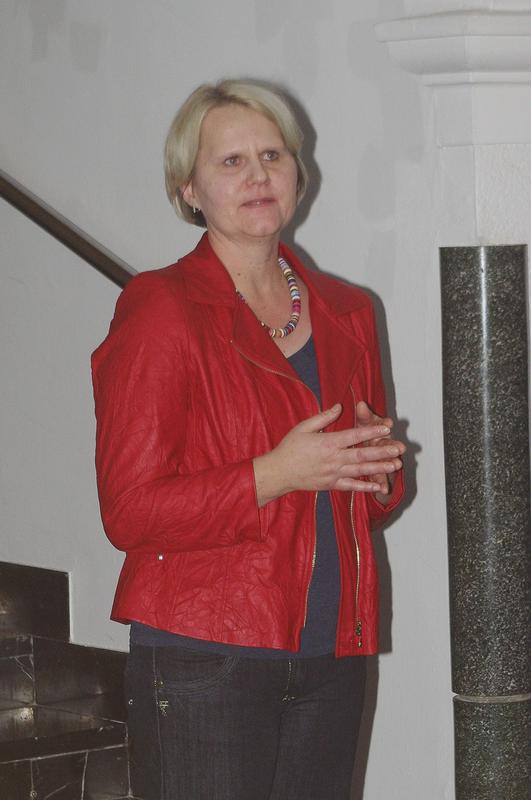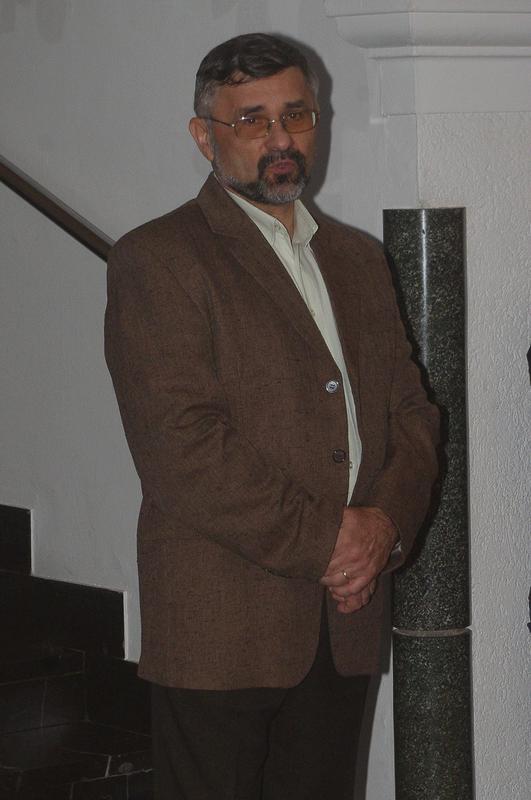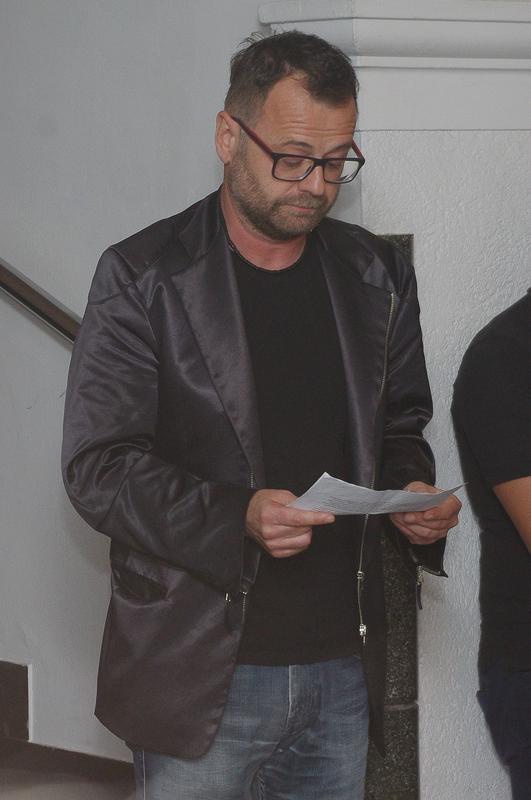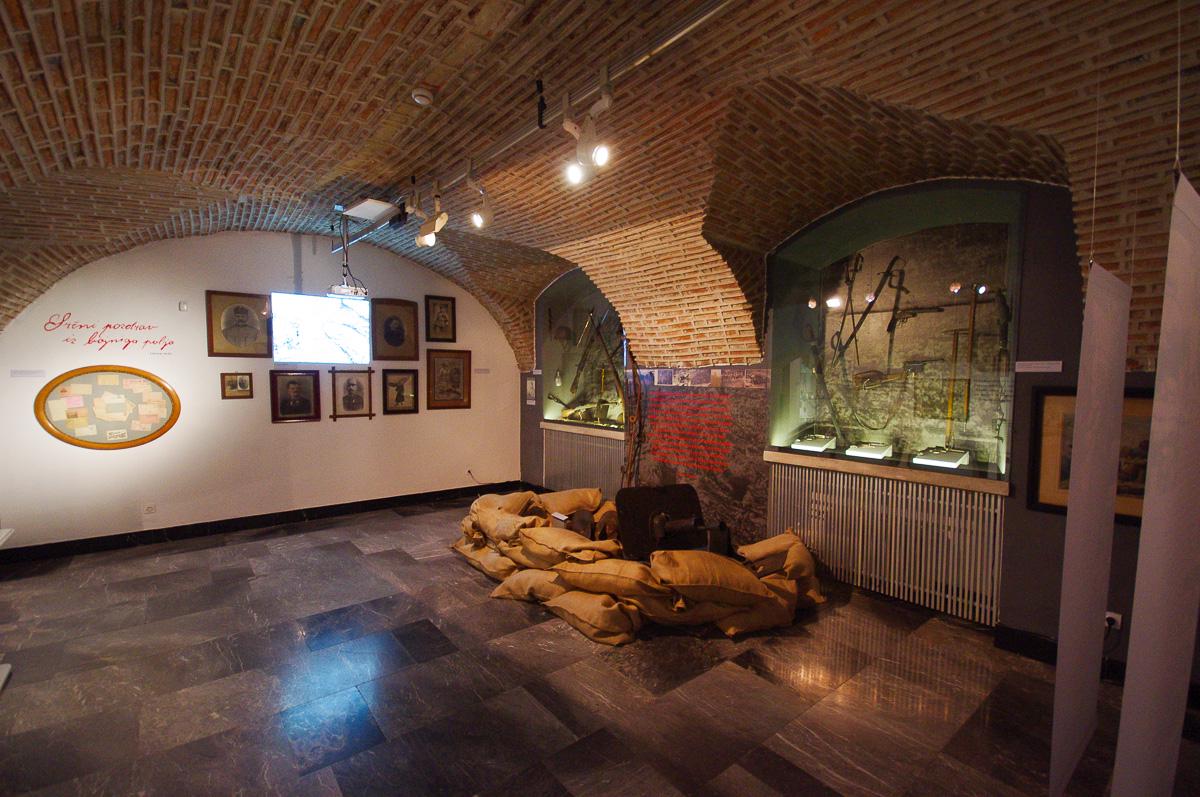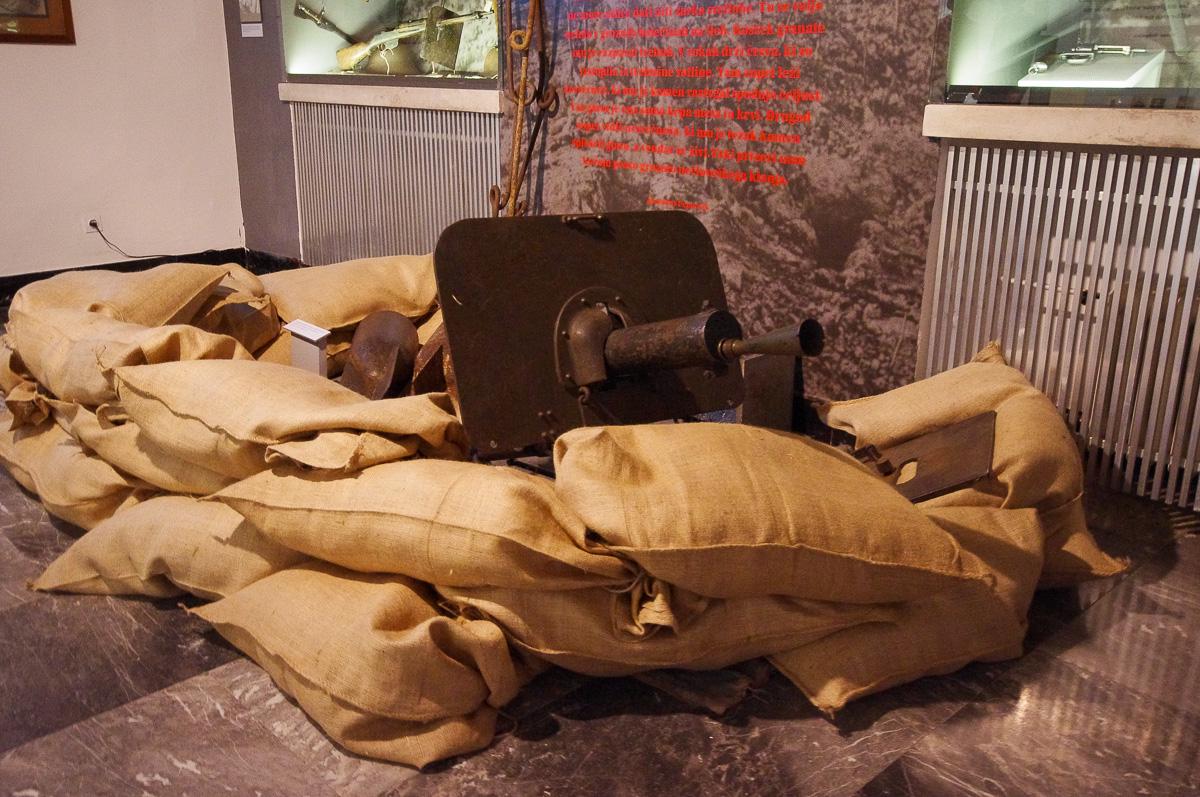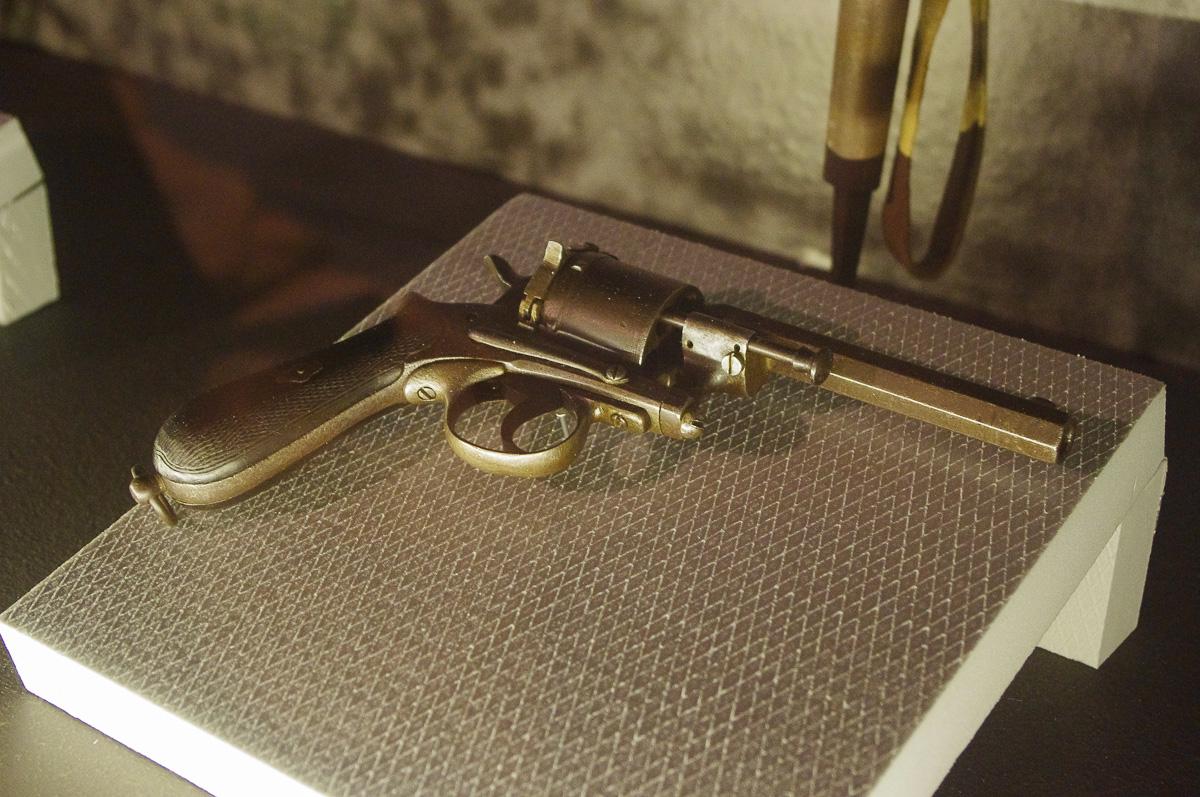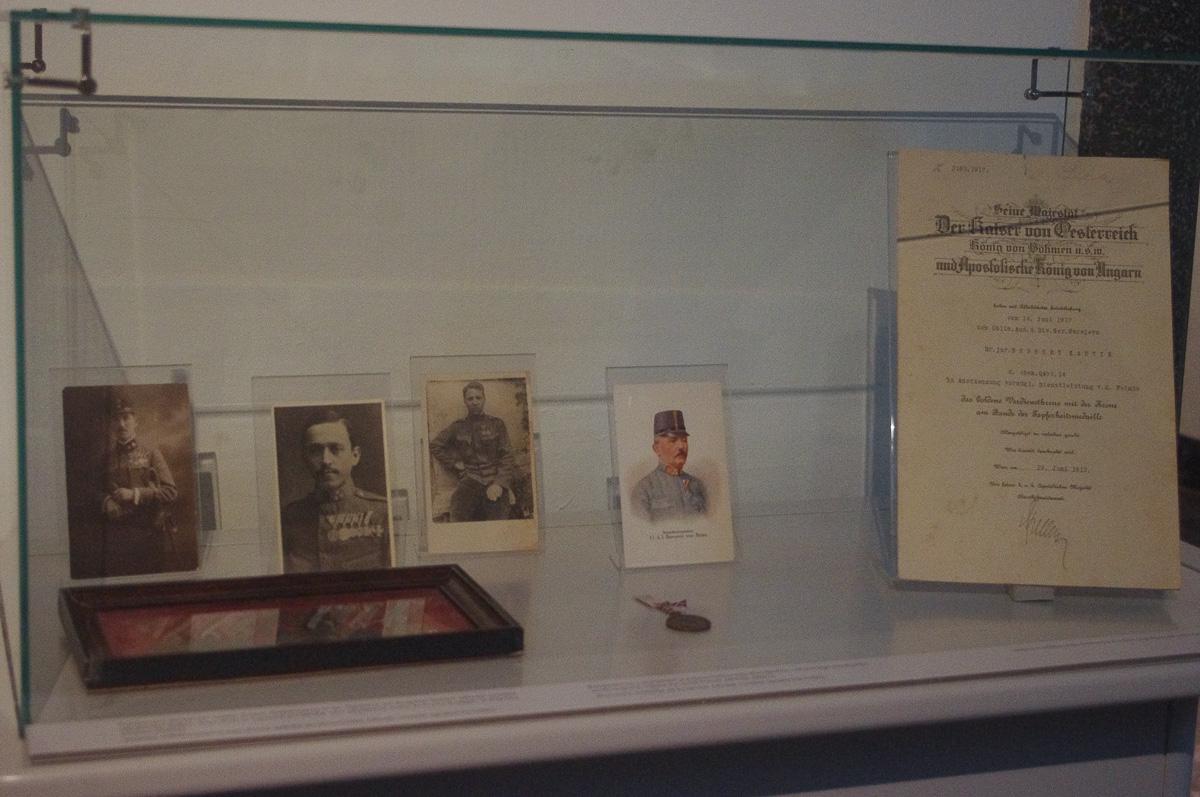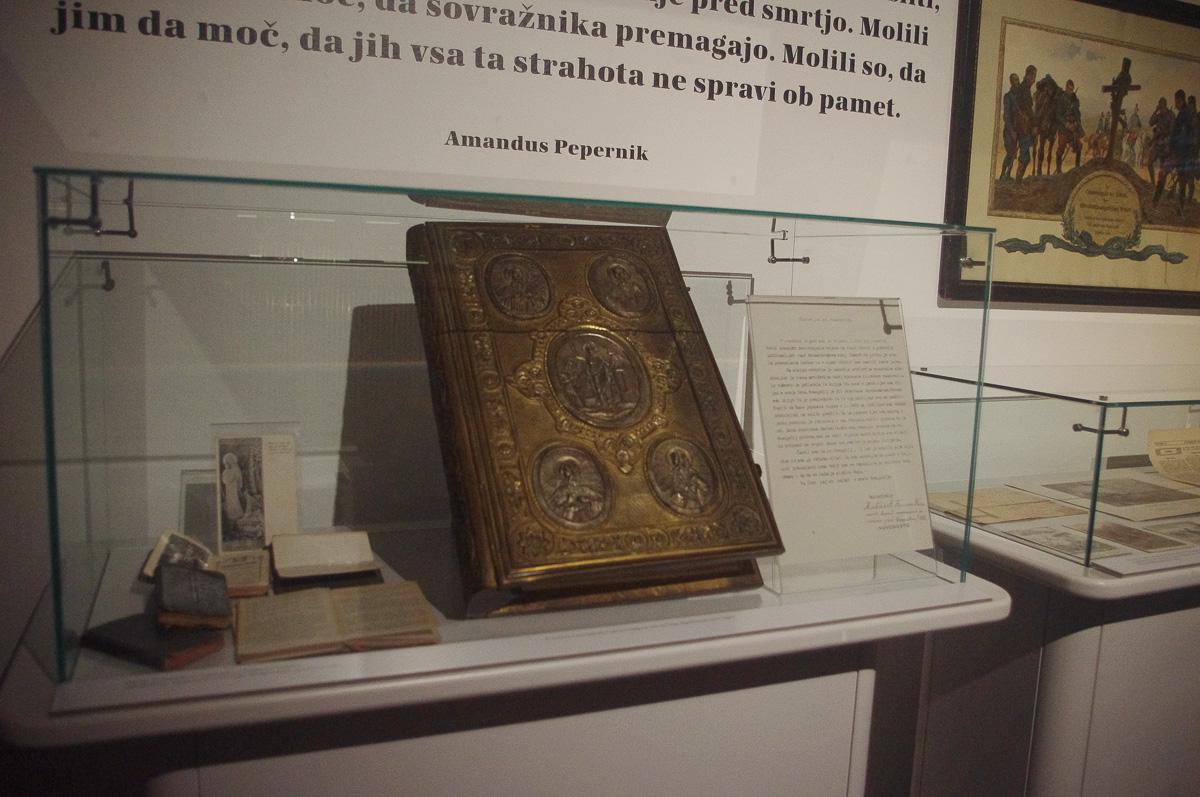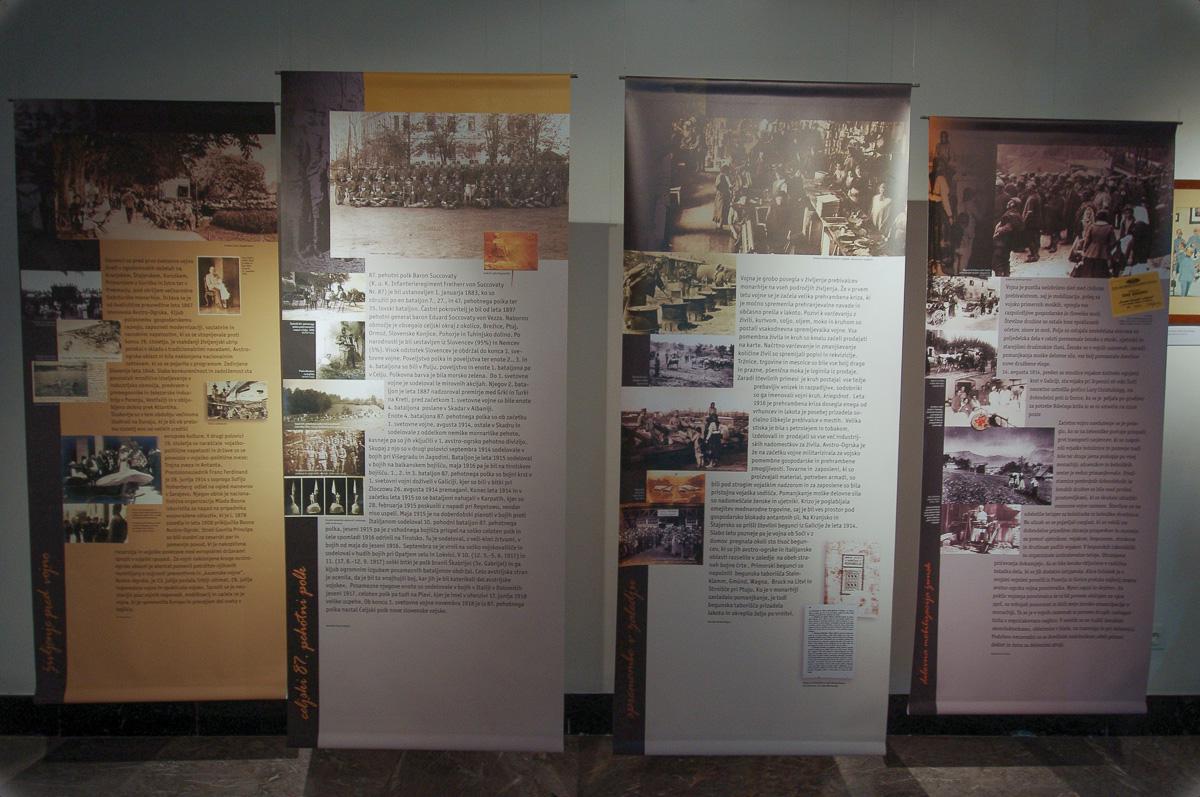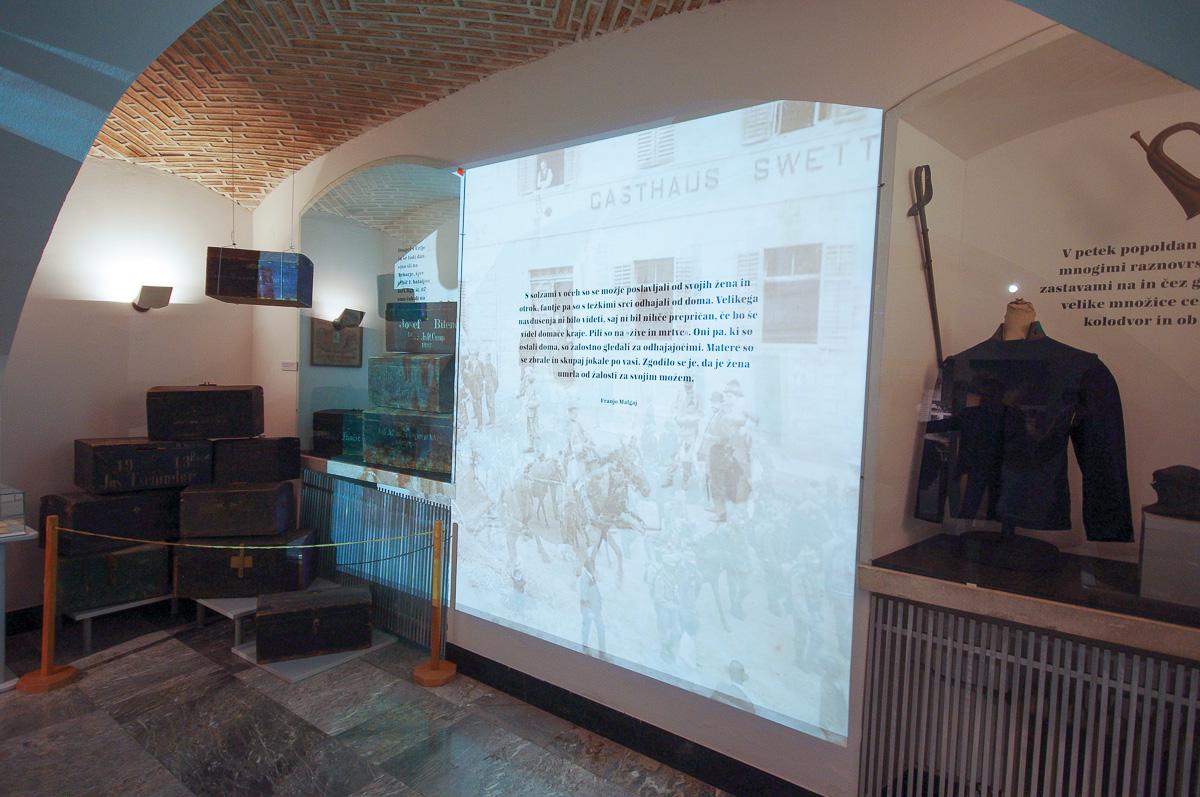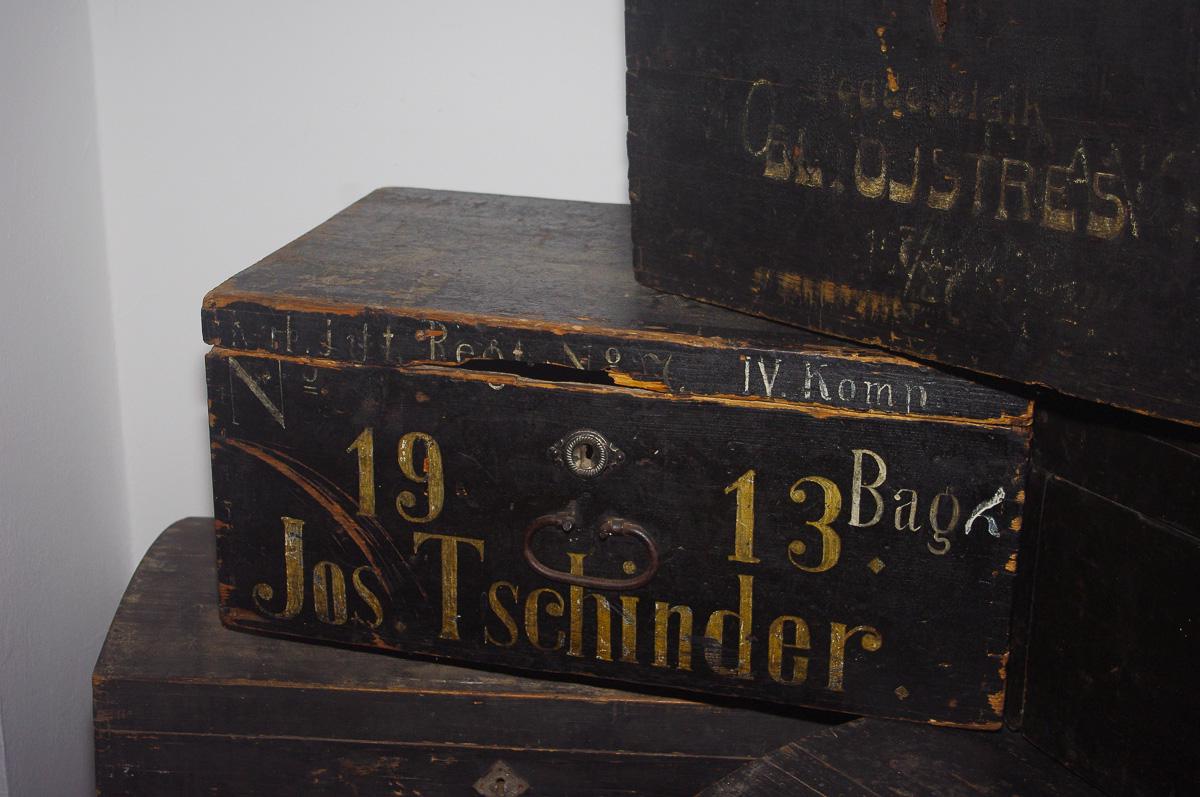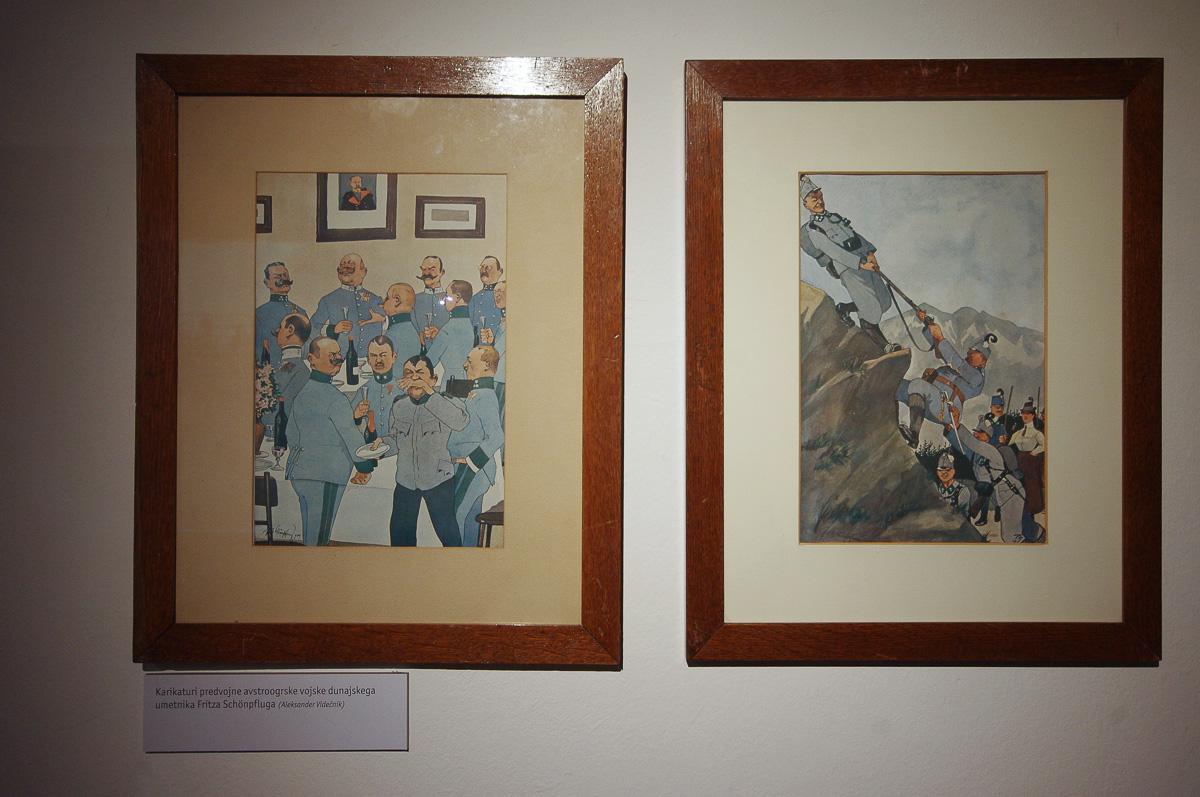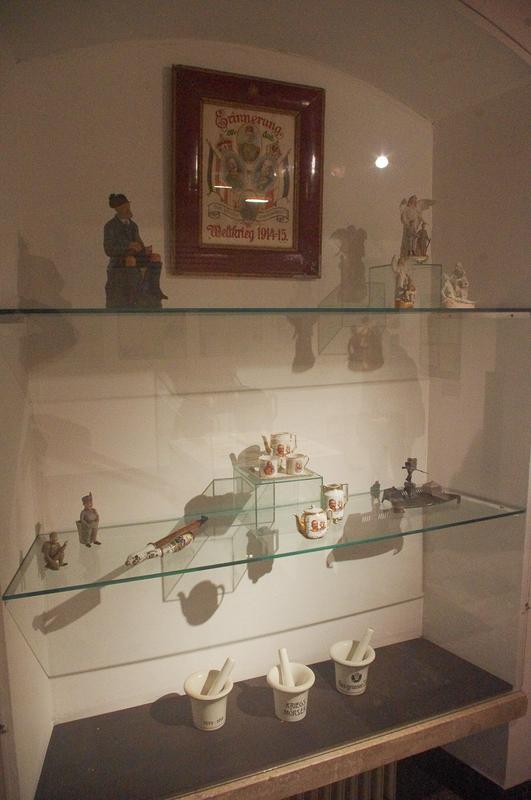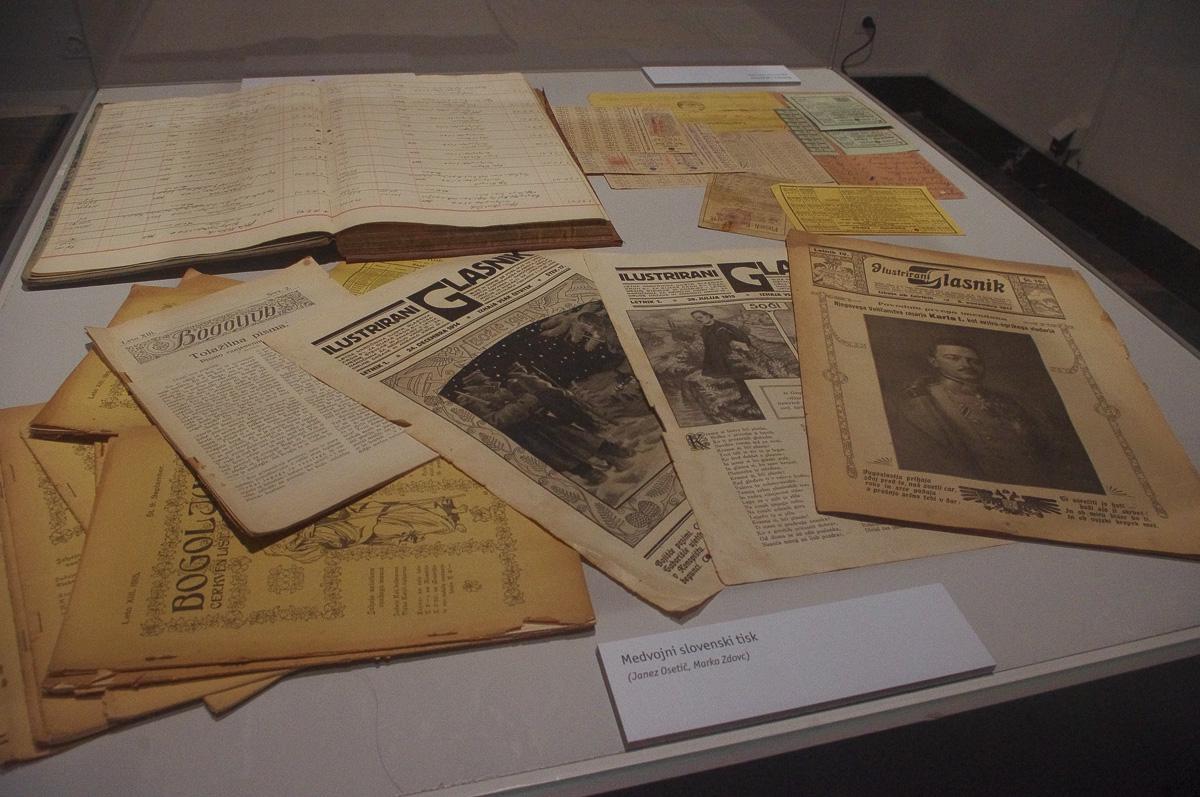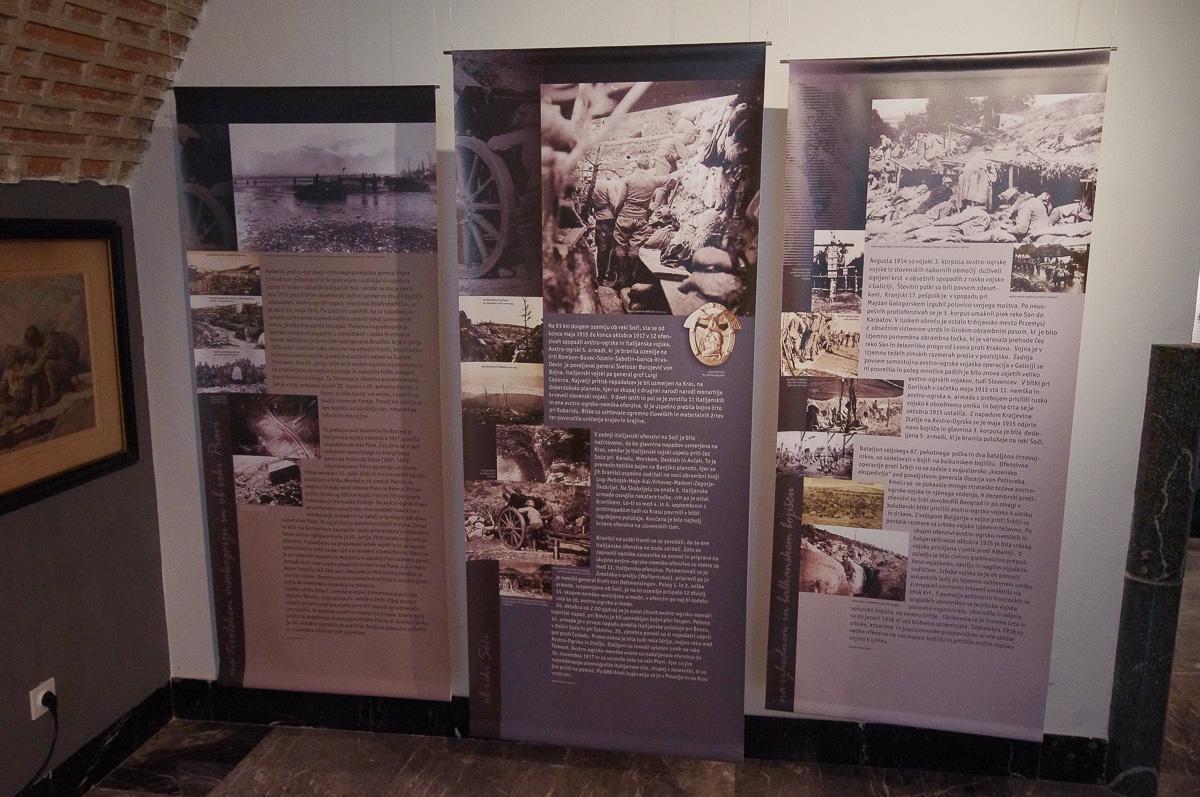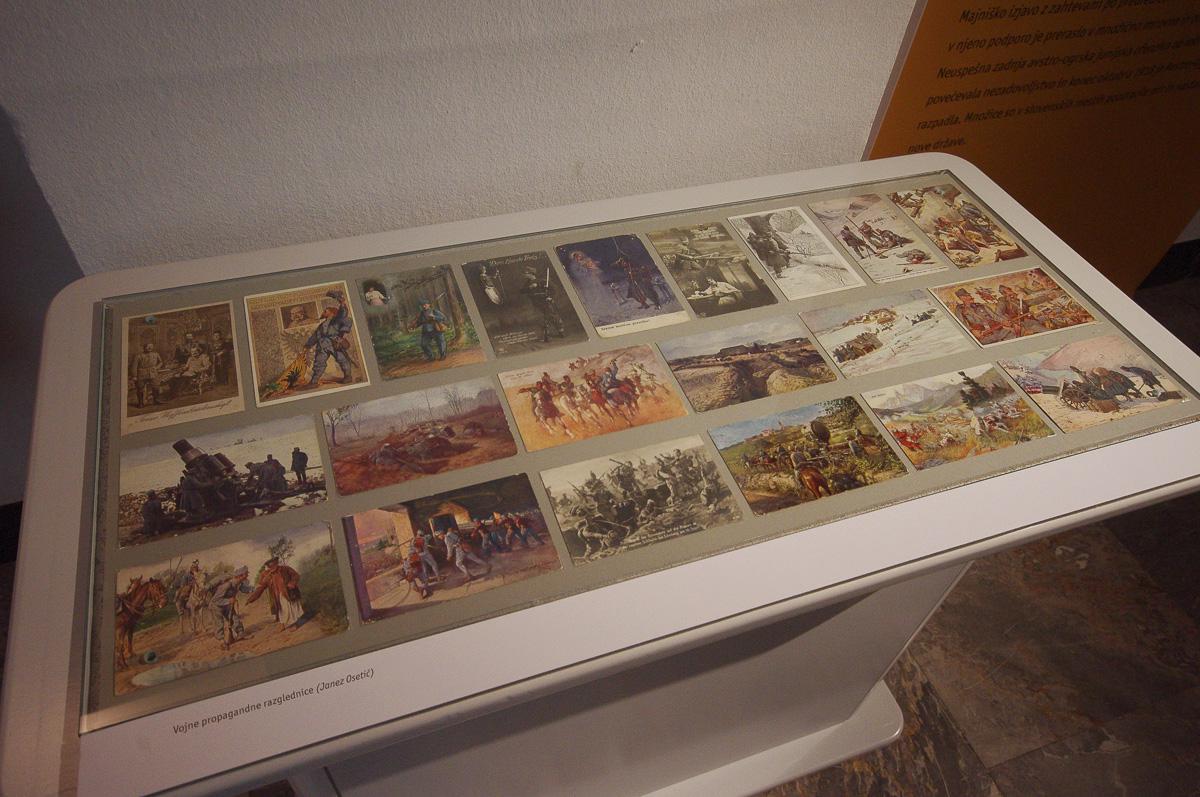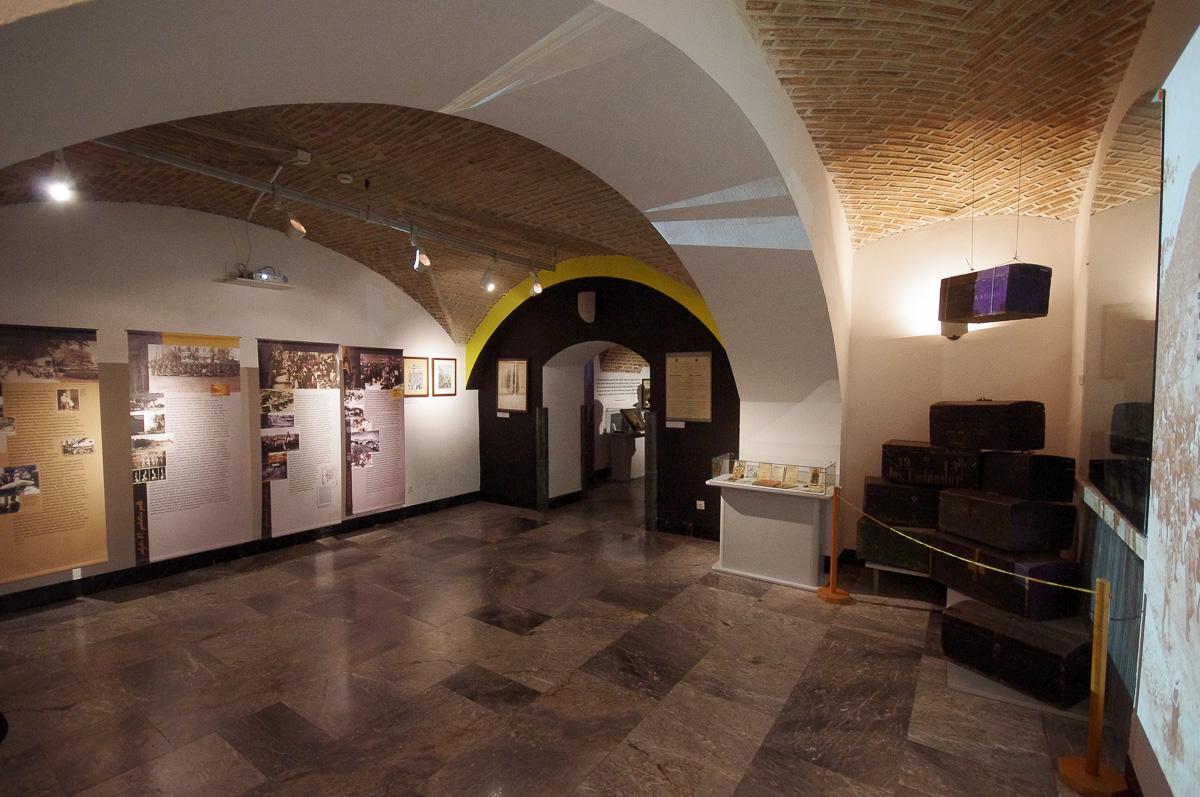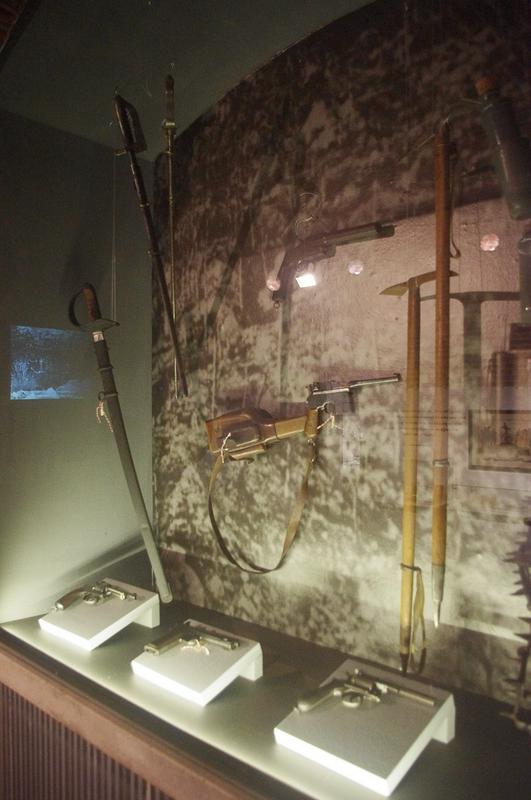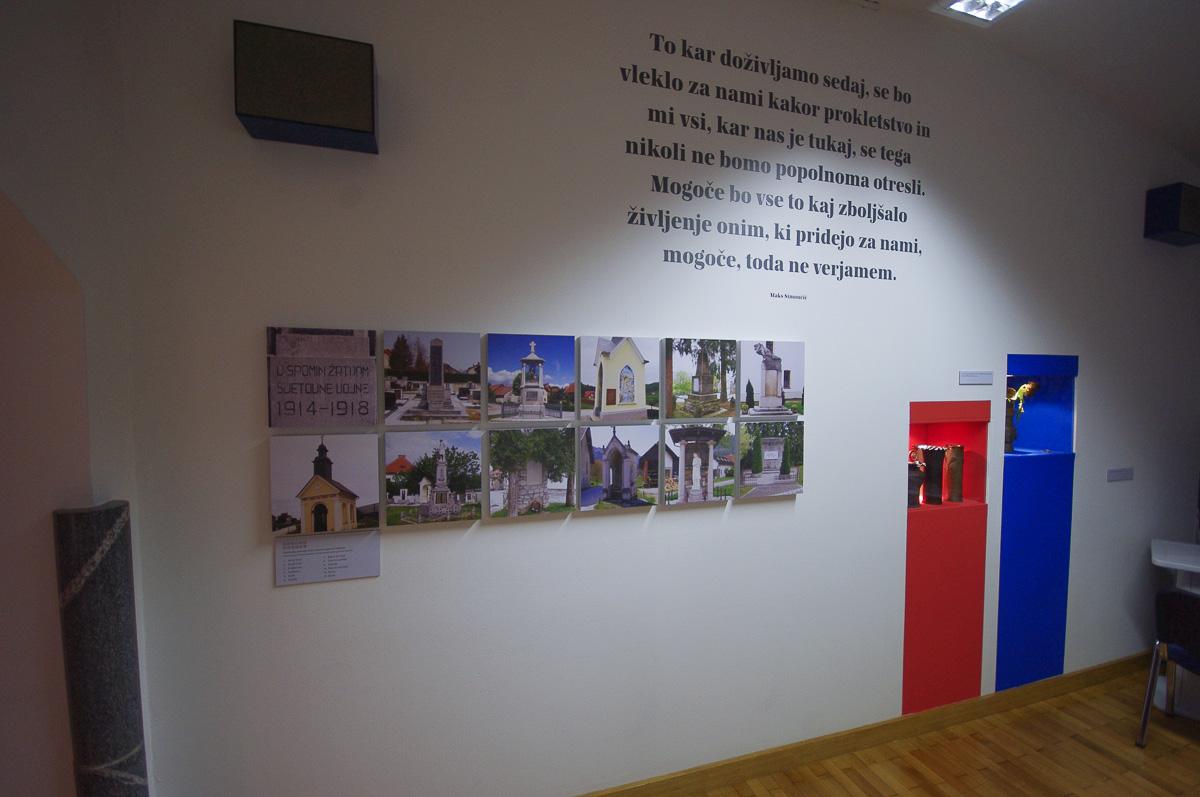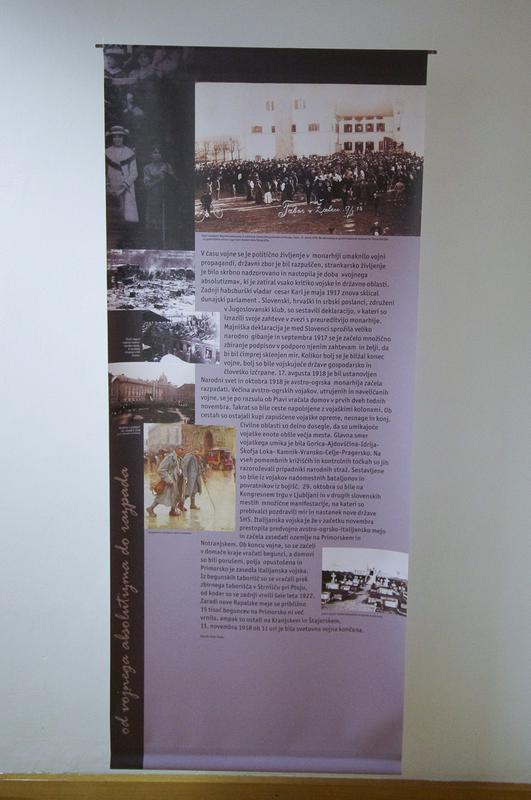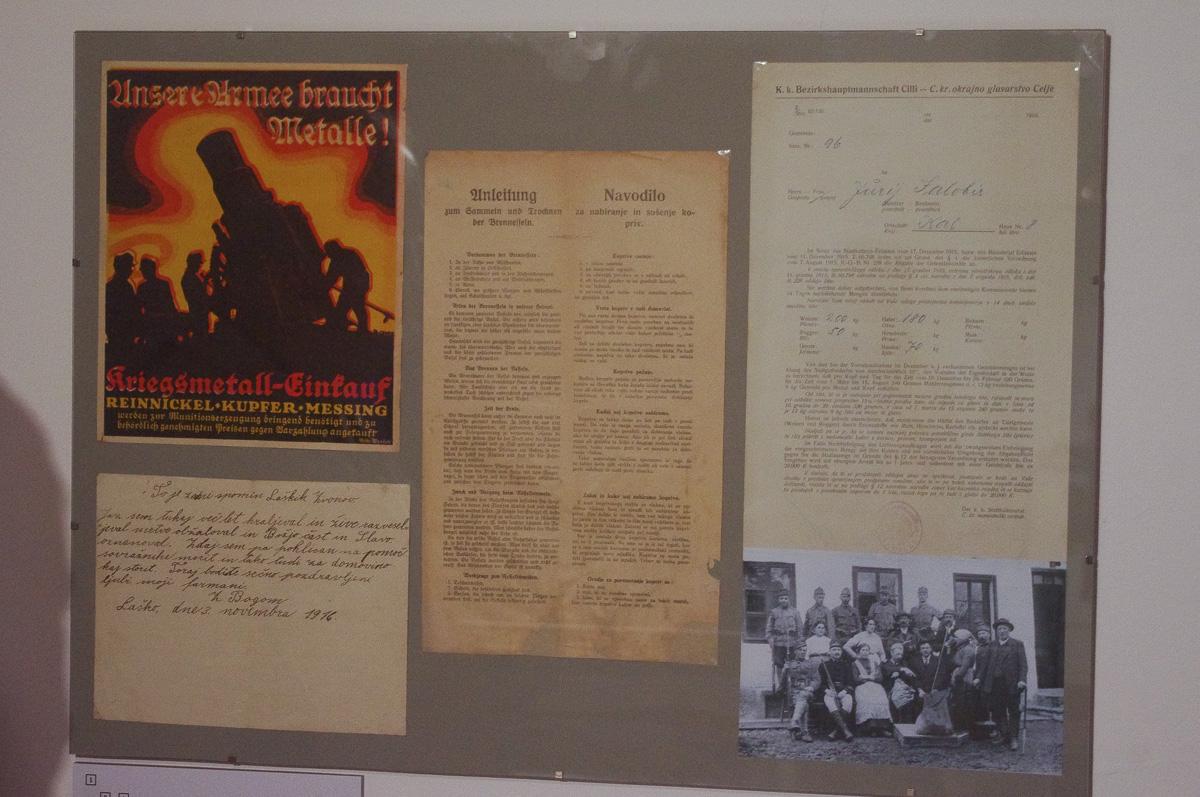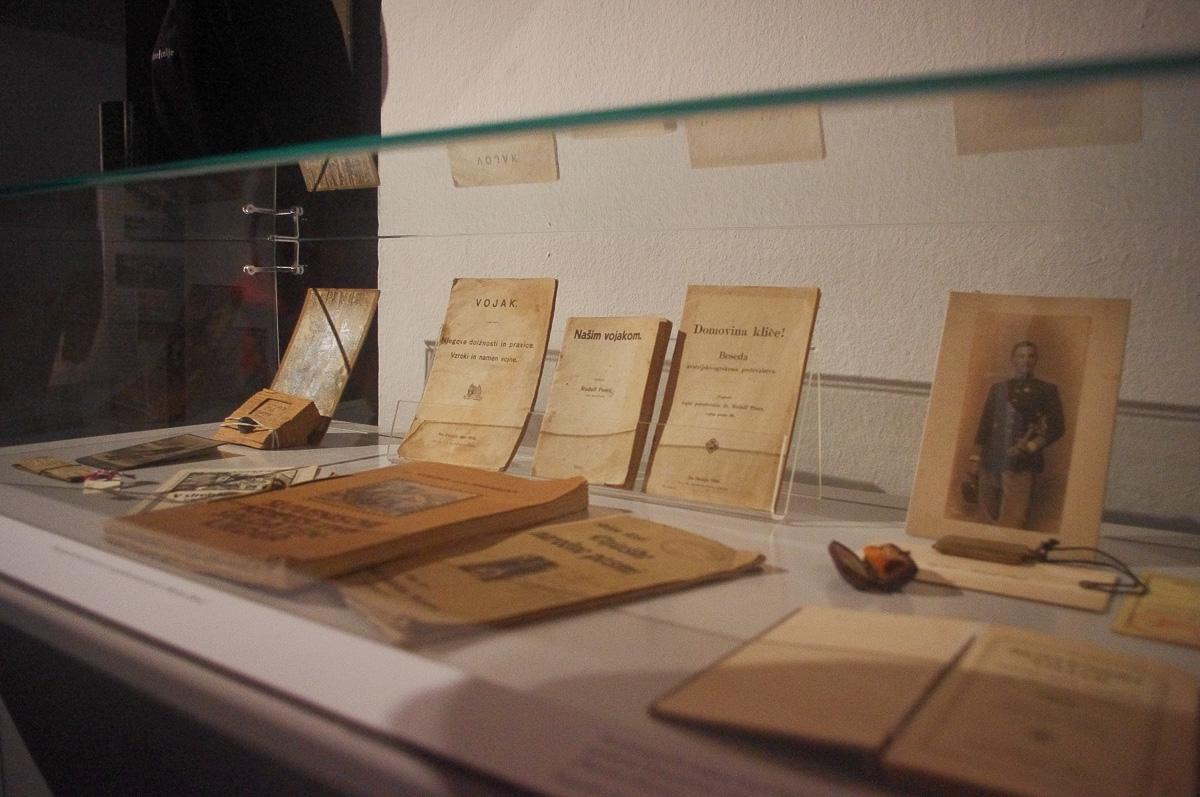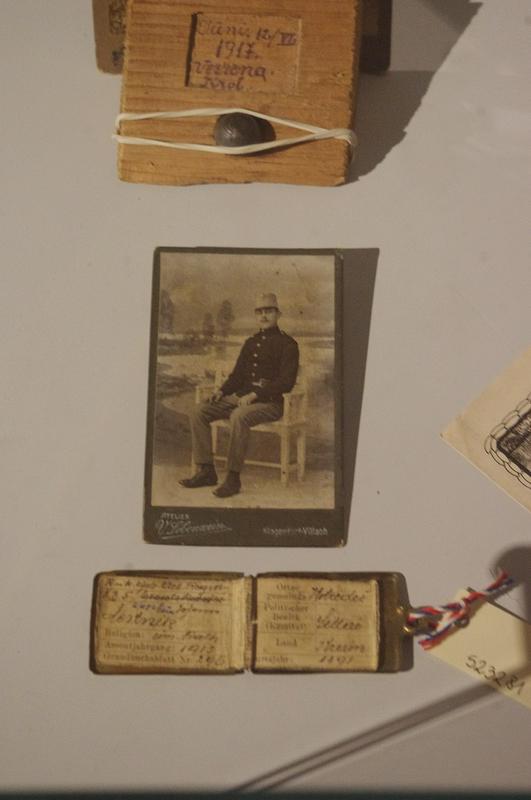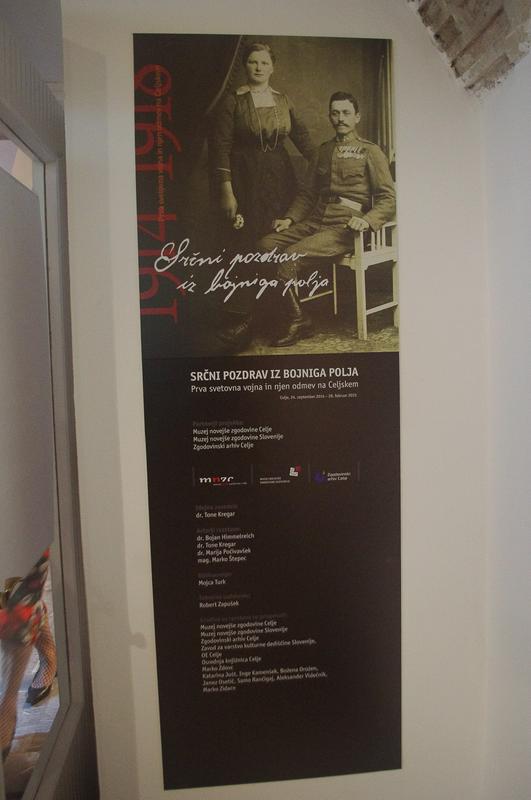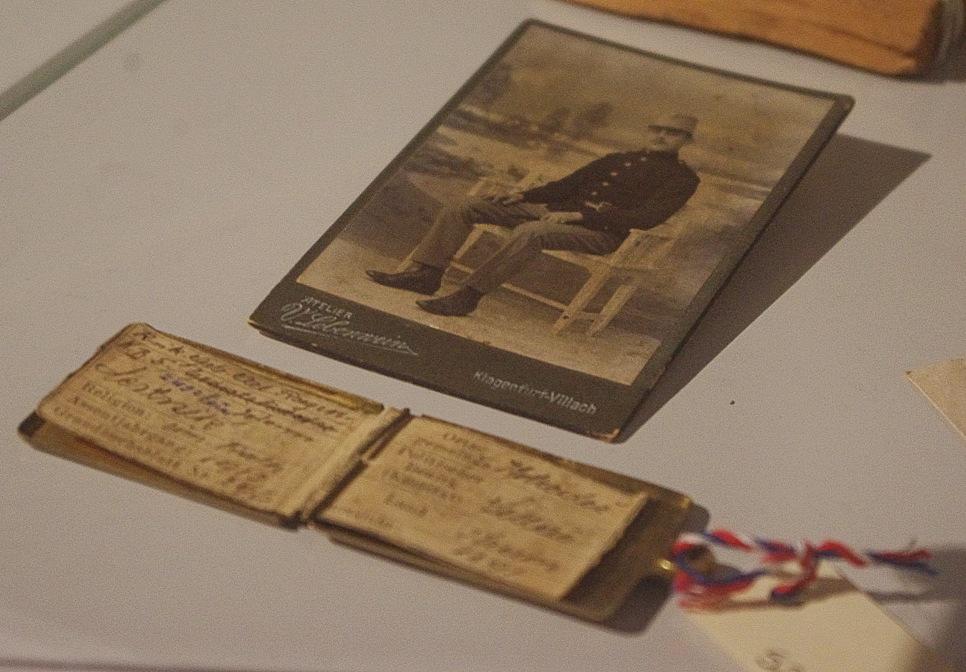
The exhibition is the result of cooperation of three institutions and their experts Tone Kregar, Marija Počivavšek, Bojan Himmelreich, Mark Štepec, Mojca Turk, and other collaborators. A great number of exhibit pieces were donated for the exhibition by private collectors
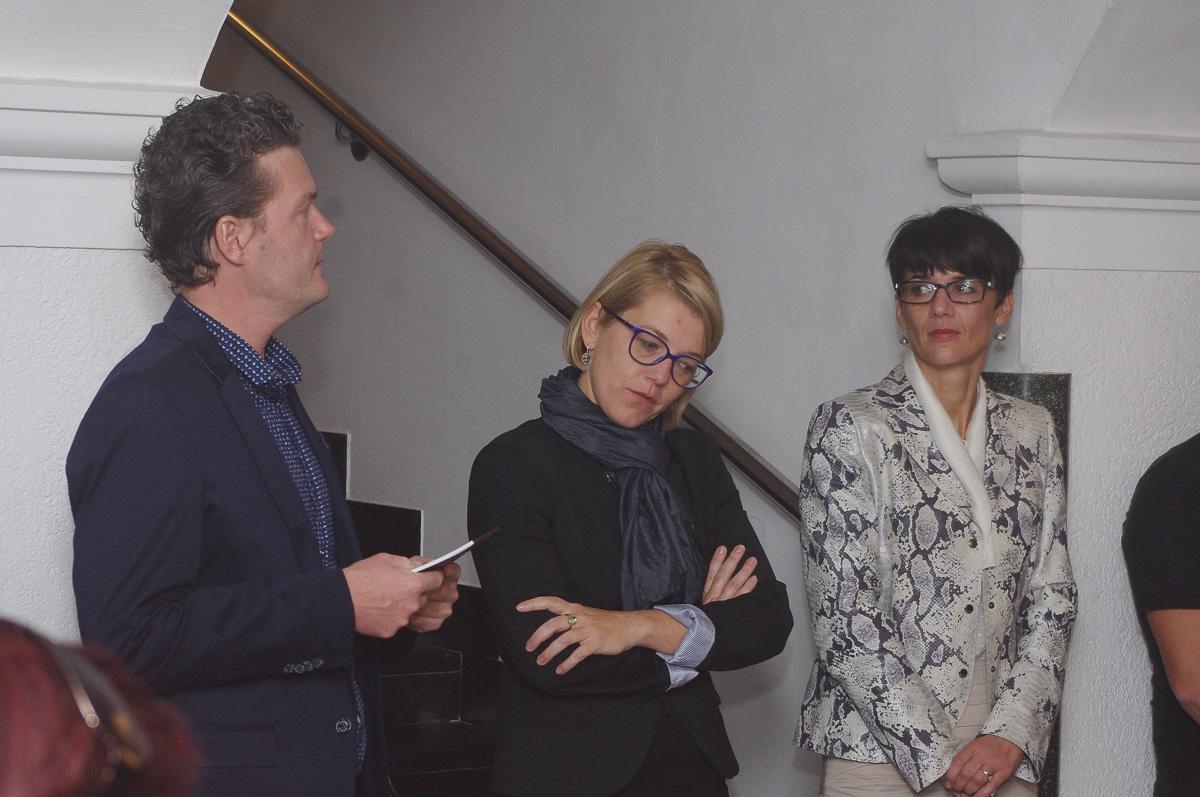

100th anniversary of the beginning of the first great world war inspired Slovenian museums and other historical institutions to approach the recollection of the Great War from different angles, and to introduce to the visitors the legacy of that time.
The Celje Museum of Recent History in cooperation with the Historical Archives Celje and the National Museum of Contemporary History prepared an exhibition focused on the manner people from the wider Celje region experienced the war. In this way they are trying, as said by Tone Kregar, one of authors of the exhibition, to "settle the debt towards our ancestors from the wider Celje region, as their stories had been pushed aside, to the edge of historical memory, for much too long."
Celje was flooded with soldiers
Soon after the declarations of war the life of people changed drastically. Crowds of recruits came to Celje, and they had to be housed in public buildings and schools as well. Their departure by trains to battlefields was accompanied by loud crowds of people with flowers and flags, and music. But under the initial excitement anguish and fear of what was to come were lurking.
The recruits from the wider Celje region mostly fought in the 87th Infantry Regiment. Quite soon those men, many of them actually hardly men but boys, got to know the cruelty of the new manner of fighting. At the front in Galicia at that time there were no trenches or shelters which would allow the soldiers to bow their heads and to shield against attacks. The armies rushed upon each other, and thousands of men were left dead on the battlefield.
"This one lost his leg, that one his arms"
When a year later another front was opened on the Slovenian territory near the Soča river, the scenes were just as shocking. The words of Amandus Pepernik, a soldier from the 87th Infantry Regiment, are quoted, recalling: "This one is missing his arms, the other his legs, the third had his eyes pushed out by the air pressure from a mine or a grenade. 'Light, light' he implores in despair, yet nobody is capable of shedding even a single ray of light to him."
The wounded soldiers were transported to Celje as well, buildings were converted into provisional hospitals, new sheds were being erected to make place for the wounded. The decision that also dead soldiers who had not survived the long transport from the battlefield would be deposited in Celje caused a number of complaints.
Shortage was felt behind the front lines as well
The whole country worked for the war, everything was subjected to army needs. But it were women who had to launch war economy, as men were scarce behind the front lines. Women worked in factories, in the fields, cared for the wounded, collected and sewed necessities for soldiers, and at the same time provided for their families. Food was in short supply, as the country had not been prepared for such a long war. Ration cards ruled the daily routine, and struggle for survival at home became a constant companion to fear for the lives of their soldiers.
Families often didn't know what was going on with their beloved. Postcards and letters, which had to pass through the thin sieve of censorship of the state, could bring either solace, or even greater worries. Those preserved are shedding light to the sentiments and personalities of 'little, ordinary' soldiers, so often overlooked within the great history events. "Greetings from the heart from the battlefield" sent Lovrenc Selič from Dobje near Planina to his wife, and 100 years later gave the title to this exhibition, dedicated to the memory of the great carnage.
In order to preserve the memory, and as a warning ...
"What we are going through now will remain with us as a curse, and none of us who are here will ever get completely rid of it. Perhaps it will help make better lives for those who will come after us. It might, but I don't believe it will," Maks Simonič looked forward without much hope.
The intention of the Celje Museum of Recent History was above all to preserve the memory of the suffering and the horrors. They plan to exhibit the drawings of the students of the Celje Center Grammar school in the hall of the museum, created during their study of the war. In this way the echo of the World War 1 will keep reverberating also in present, which with their anxiety too often reminds of those past times.
Ana Svenšek
Translated by G. K.
The exhibition is the result of cooperation of three institutions and their experts Tone Kregar, Marija Počivavšek, Bojan Himmelreich, Mark Štepec, Mojca Turk, and other collaborators. A great number of exhibit pieces were donated for the exhibition by private collectors





















































